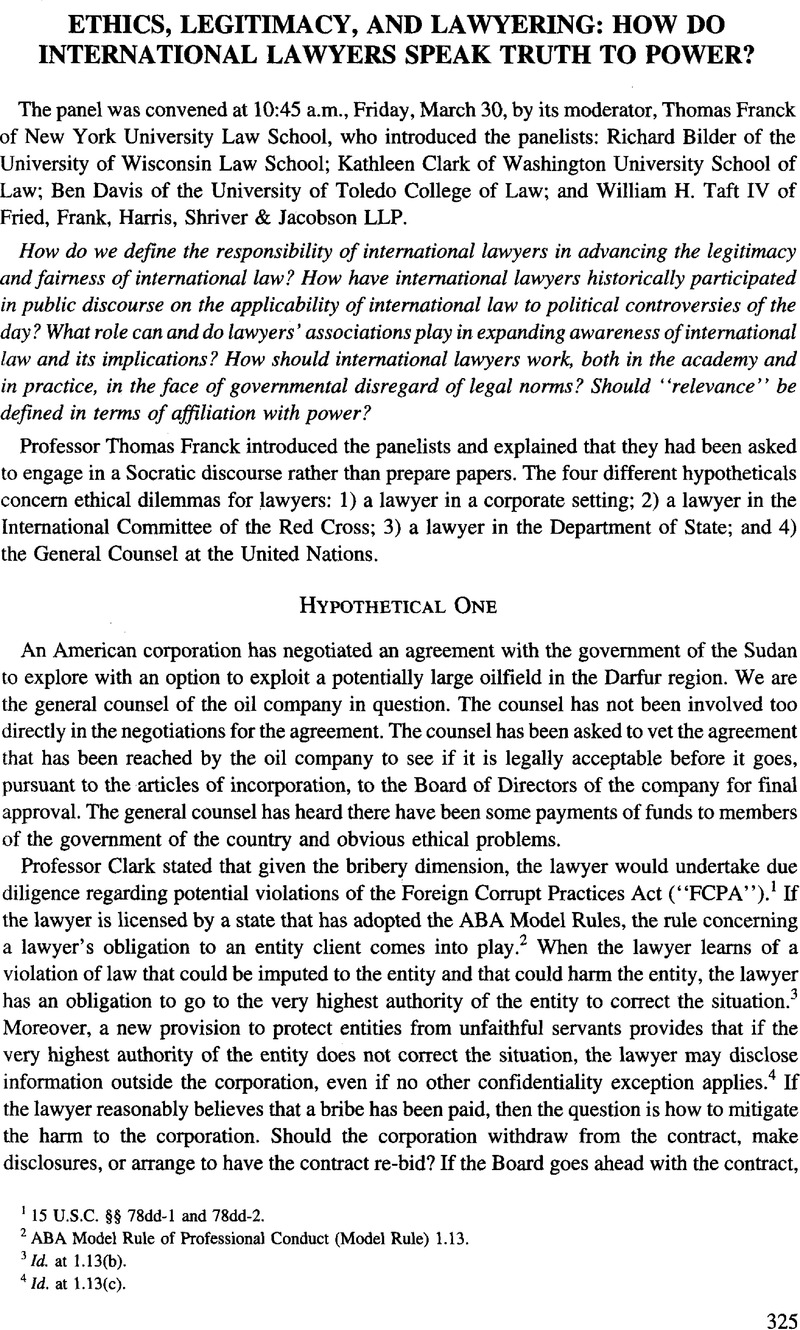No CrossRef data available.
Published online by Cambridge University Press: 28 February 2017

1 15 U.S.C. §§ 78dd-l and 78dd-2.
2 ABA Model Rule of Professional Conduct (Model Rule) 1.13.
3 Id. at 1.13(b).
4 Id. at 1.13(c).
5 See Edward Weisband & Thomas M. Franck, Resignation in Protest (1975).
6 18 U.S.C. §§ 793 & 641.
7 Model Rule 1.6(b)(1).
8 See Jane Mayer, The Memo: How an Internal Effort to Ban the Abuse and Torture of Detainees was Thwarted, New Yorker (Feb. 27, 2006).
9 Joint Committee of the ASIL and American Branch of the ILA, “The Role of the Legal Adviser of the Department of State: A Report of the Joint Committee Established by the American Society of International Law and the American Branch of the International Law Association” (1990), reprinted in 85 AJIL 358 (1991).
10 Bilder, Richard B. & Vagts, Detlev F. Speaking Law to Power: Lawyers and Torture, 98 AJIL 689 (2004)CrossRefGoogle Scholar.
11 Fed. R. Civ. Proc. 11.
12 Clark, Kathleen, Ethical Issues Raised by the OLC Torture Memorandum, 1 J. Nat’l Security L. & Poly 455 (2005)Google Scholar.